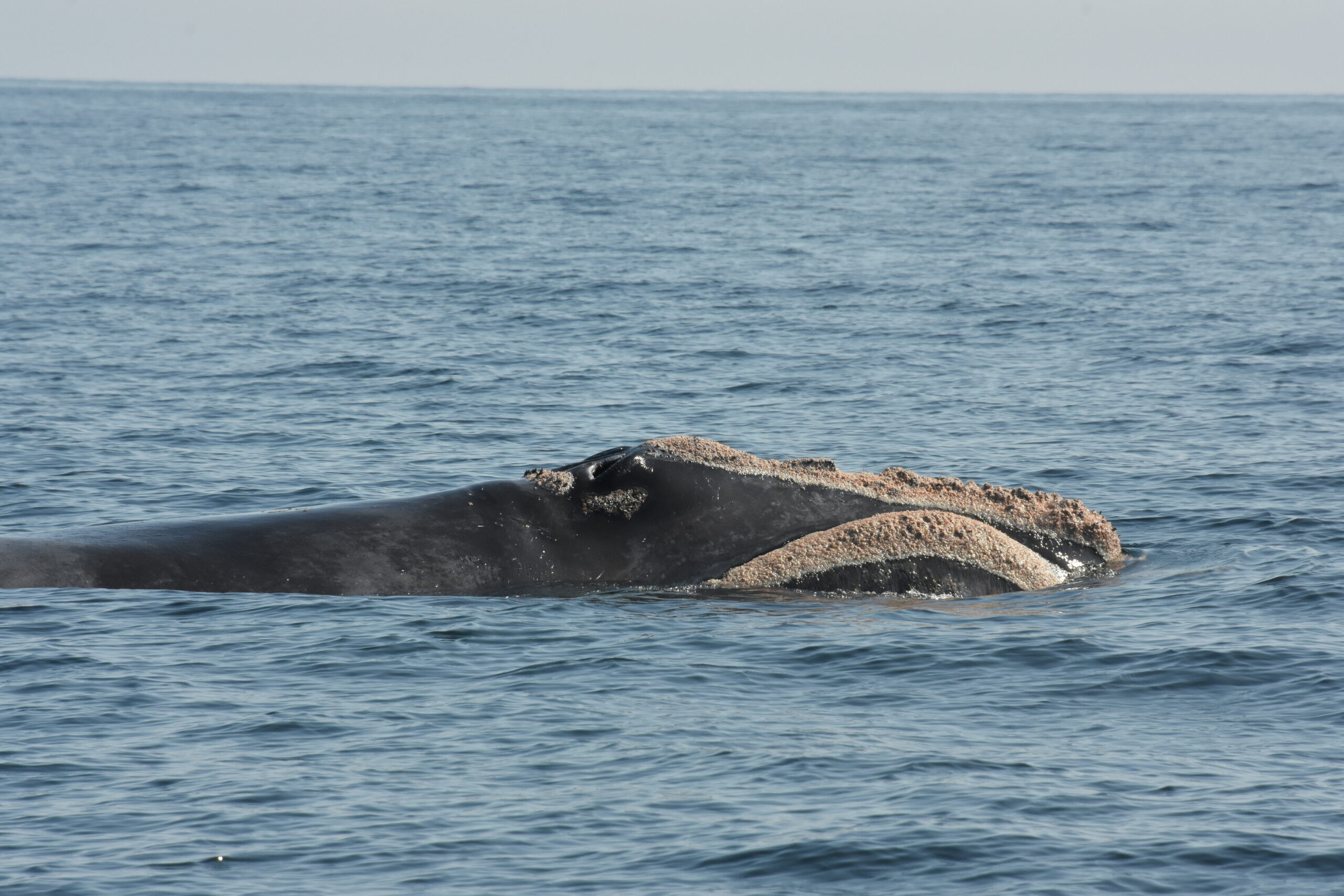
BOSTON, MASS. (Dec. 6, 2023) – Scientists at the New England Aquarium are unveiling a new slate of named North Atlantic right whales, an annual tradition that helps researchers in the field identify the critically endangered animals in real time.
**PHOTOS AVAILABLE HERE – SEE CREDIT INFORMATION IN FOLDER**
Every right whale in the North Atlantic Right Whale Catalog has a number assigned to them, and many of these whales have also been given names that help scientists more easily recognize the whales when they see them during field work. Even for a small population of just 356 individuals, remembering numbers for each whale can be daunting, so names can make it easier. This year, 19 right whales were assigned names.
“Whale naming is a fun change of pace for those of us studying a species in peril. It allows us to be creative in looking at a whale’s unique appearance and experiences and often results in deeper connections with the whales for both the researchers and the public,” said Amy Warren, an assistant research scientist in the Anderson Cabot Center for Ocean Life at the New England Aquarium, who led this year’s naming process.
The naming process involves submissions from various research organizations and a ranked choice voting system. The names are intended to relate to easily recognizable features or facts about the individual whale. The 2023 group includes “Jagger” (Catalog #5046), a 3-year-old male who is named for the large callosity markings (patches of raised tissue) on his lips, resembling the lips of rockstar Mick Jagger. Another male right whale, “Kermit” (Catalog #4220), has a callosity shaped like Kermit the Frog. The Aquarium collaborates with Whale and Dolphin Conservation on playful yearbook-style bios for each of the newly named whales. Kermit’s bio indicates his favorite song is “Bein’ Green.” (The full list is available on neaq.org.)
“Naming whales reminds us that each individual whale is unique, with their own identity, and plays an important role in their community and in our lives,” said Regina Asmutis-Silvia, executive director and senior biologist for Whale and Dolphin Conservation North America.
Other new names this year include 22-year-old female “Marilyn Monroe” (Catalog #3130), whose name originates from a scar on the front of her head that resembles the film star’s iconic beauty mark. There’s also “Katahdin” (Catalog #4633), who has a callosity towards the front of her head that is tall and stands apart, just like the tallest mountain in Maine, and “Waldo” (Catalog #3191), who is identified by a pattern on his head resembling the signature glasses of the “Where’s Waldo” character. This 23-year-old male was first seen in the Gulf of Maine and has since been spotted from the Southeast U.S. calving grounds off Georgia and Florida all the way to Canada.
The annual North Atlantic right whale calving season is underway, with researchers conducting aerial and boat-based surveys to identify new whales born into the population. It is a time of hope for the critically endangered species, which remains highly vulnerable to vessel strikes, entanglement in fishing gear, and climate change.
The New England Aquarium has been studying North Atlantic right whales, one of the world’s most endangered large whale species, for more than 40 years. Scientists in the Aquarium’s Anderson Cabot Center are pioneering hormone and stress research, assessing and tracking anthropogenic injuries, and conducting aerial surveys to monitor the animals’ habitat use, which provides crucial information to better protect the species.
MEDIA CONTACT: Pam Bechtold Snyder, psnyder@neaq.org; 617-686-5068
